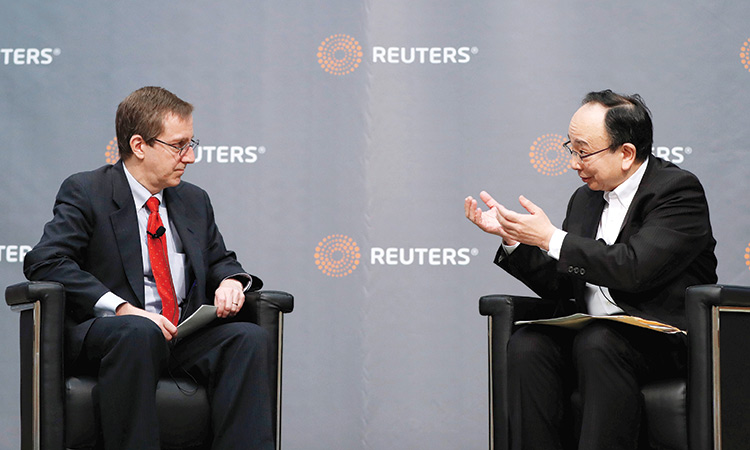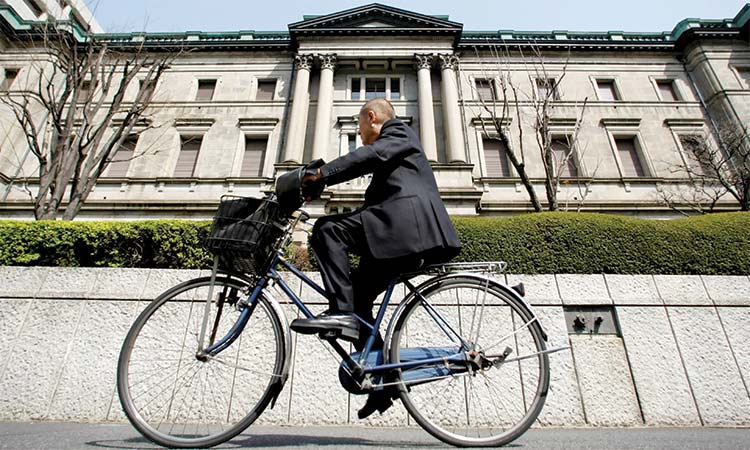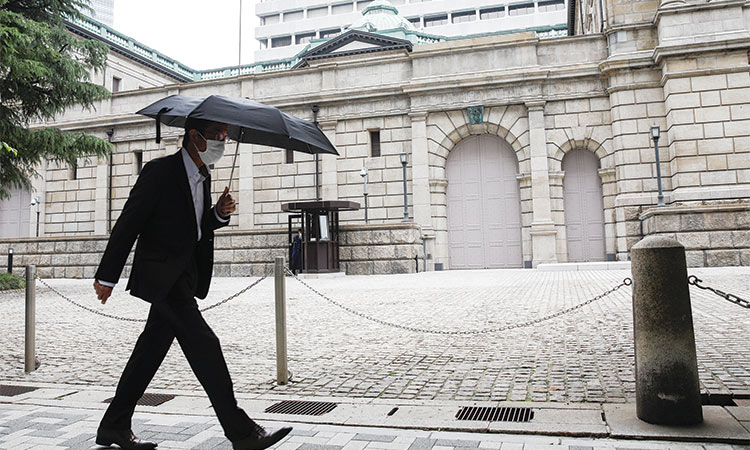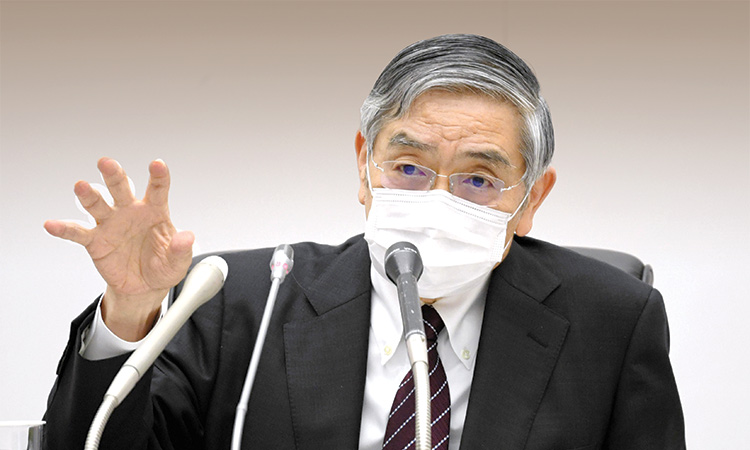Bank of Japan ready to ramp up stimulus, seek policy options

Masayoshi Amamiya (right) with William Mallard during an event in Tokyo. Reuters
Masayoshi Amamiya spoke to Reuters Japan Bureau Chief William Mallard during a Reuters Newsmaker event in Tokyo, on Friday.
Amamiya said Japan’s economy remains on track to achieve the central bank’s 2% price goal, as robust capital expenditure offsets some of the weaknesses in exports and output.
But he said the BOJ was mindful of growing risks to the outlook, particularly from overseas, and will be watchful about the resilience of domestic demand to external pressure.
“For now, our baseline scenario is that Japan’s economy will continue to expand moderately and gradually push up inflation to our target,” Amamiya told a Reuters Newsmaker event on Friday.
“But there are various downside risks. If such risks hurt the economy’s momentum to achieve our price target, we won’t hesitate to consider easing more,” he said, when asked whether the BOJ saw no need to top up stimulus for the time being.
With US-China trade frictions hurting global demand and clouding Japan’s economic outlook, some analysts predict the BOJ could ease monetary policy as early as at this month’s rate review.
The BOJ has said if it were to ease, it has four options - deepening negative rates, cutting its 0% long-term bond yield target, ramping up asset buying and accelerating the pace of its money printing.
But financial institutions have criticised the BOJ’s negative rate policy, saying it was hurting their margins and threatening to destabilise Japan’s banking system.
When asked whether deepening negative rates was still among the BOJ’s policy options, Amamiya said: “When we guide monetary policy, we don’t rule out any policy means.”
The BOJ could deploy the four options individually, combine some of them, or modify them from their existing forms, Amamiya said, without elaborating.
Japan’s economy expanded by an annualised 2.1% in the first quarter but many analysts predict growth will slow in the coming months as the U.S.-China tariff row hurts exports. A scheduled sales tax hike in October may also curb consumption, they warn.
Annual core consumer inflation hit 0.8% in May, remaining distant from the BOJ’s target despite years of heavy money printing that has pushed borrowing costs to or below zero.
Amamiya said that in guiding policy, the BOJ will look through temporary factors that sway inflation and focus on the strength of the economy and companies’ price-setting behaviour.
“The output gap is still positive. More companies are raising prices. If this trend continues, people’s perception of future price moves will change,” Amamiya said. “At present, the momentum (for inflation to hit 2%) is sustained.”
Under a policy dubbed yield curve control, the BOJ guides short-term rates at -0.1% and the 10-year bond yield around 0%. It also buys huge amounts of government bonds and risky assets as part of efforts to achieve its elusive 2% target.
Meanwhile, Japan cautioned the two candidates vying to replace Prime Minister Theresa May that a no-deal Brexit would be so disruptive for many companies that Japanese capital’s 35-year bet on Britain could end.
In an appeal to both Boris Johnson and Jeremy Hunt, Foreign Minister Taro Kono said Tokyo did not want a no-deal Brexit, that some companies were already moving out and that more investment could go.
“I know Boris and I know Jeremy, both of them pretty well,” Kono told Reuters in Osaka.
“I have communicated with them that Japan wouldn’t want no-deal Brexit. So hopefully Brexit could be done through an ordinary and calm way.”
Japan has long seen Britain as a pro-business, liberal gateway into the rest of the European Union and has around 1,000 companies based in the country, including major carmakers and technology firms. Japanese firms have invested over 60 billion pounds in Britain.
But following the 2016 vote to leave the European Union, some Japanese firms have begun moving business out of Britain, with particular concern over the impact of a possibly disorderly exit on Oct. 31.
“Please, no no-deal Brexit,” Kono told the BBC. “Some companies are already starting to move their operations to other places in Europe.”
Asked whether investment could leave Britain, Kono said: “It could be that there is going to be less investment.” Both Johnson and Hunt have both said they would be prepared to take Britain out of the bloc without a deal, although it was not their preferred option.
Reuters







